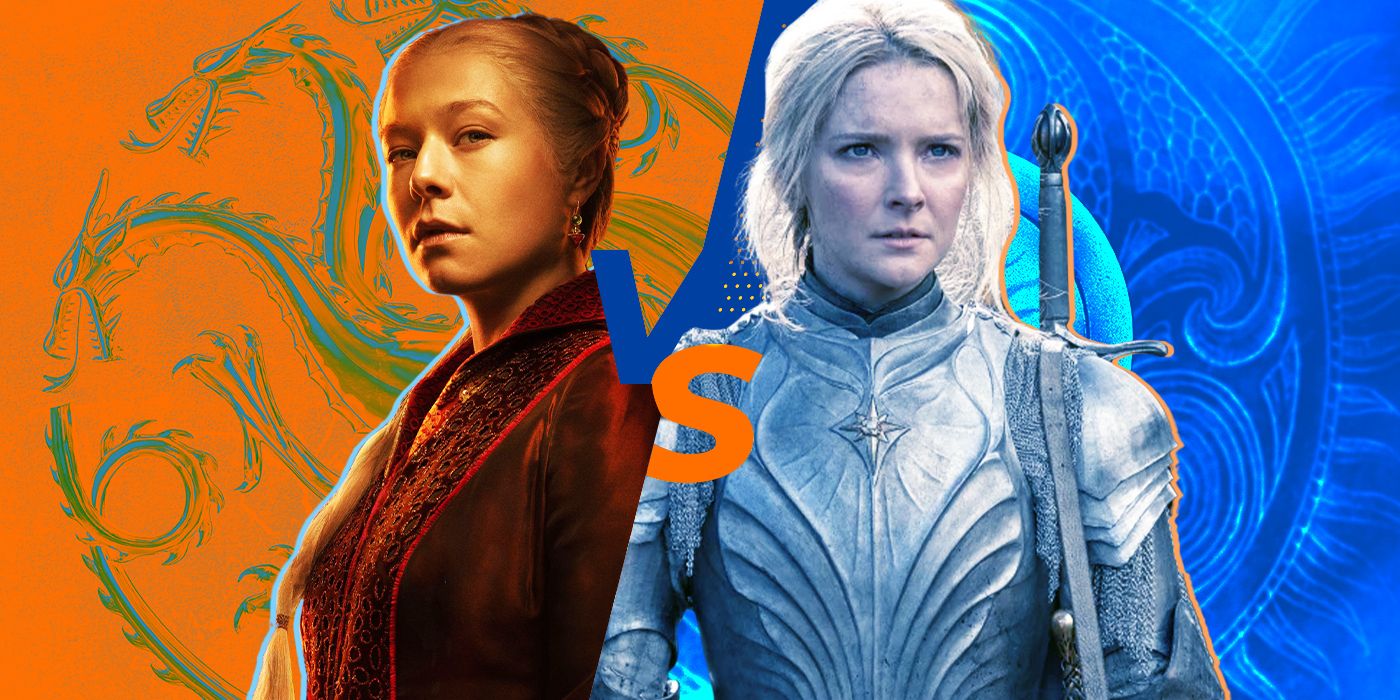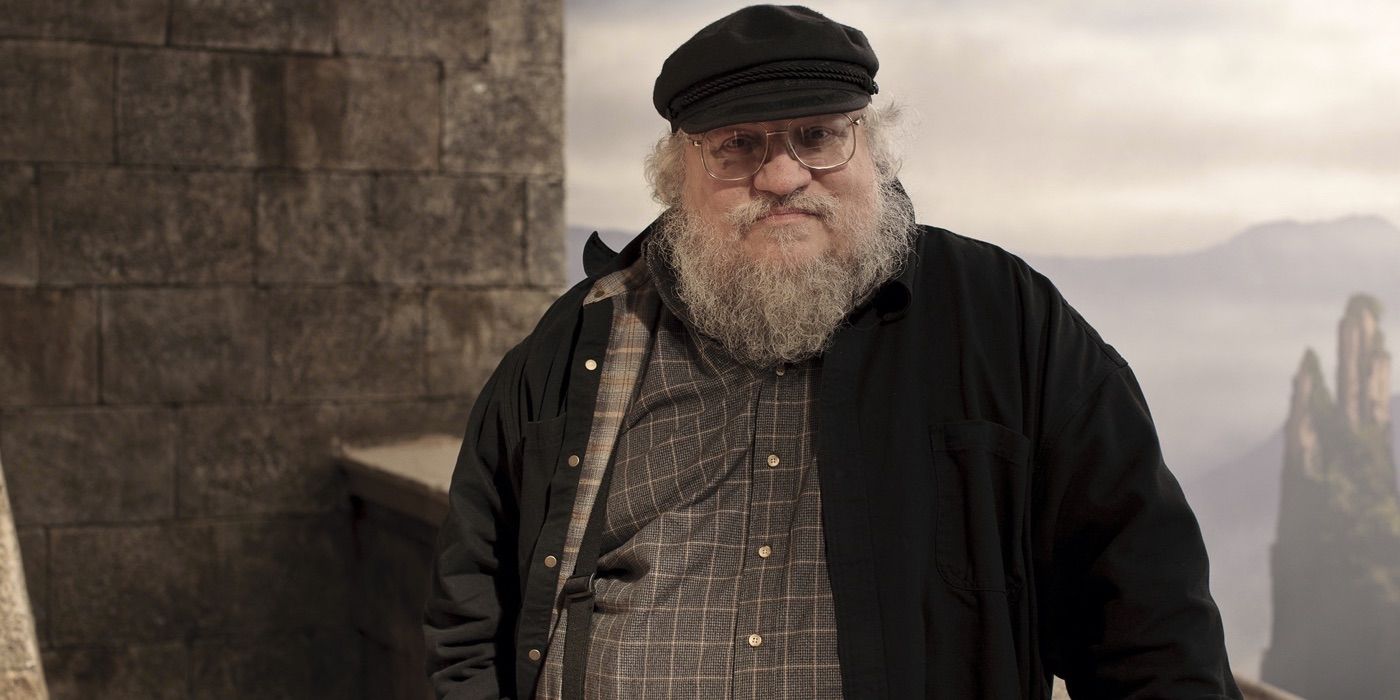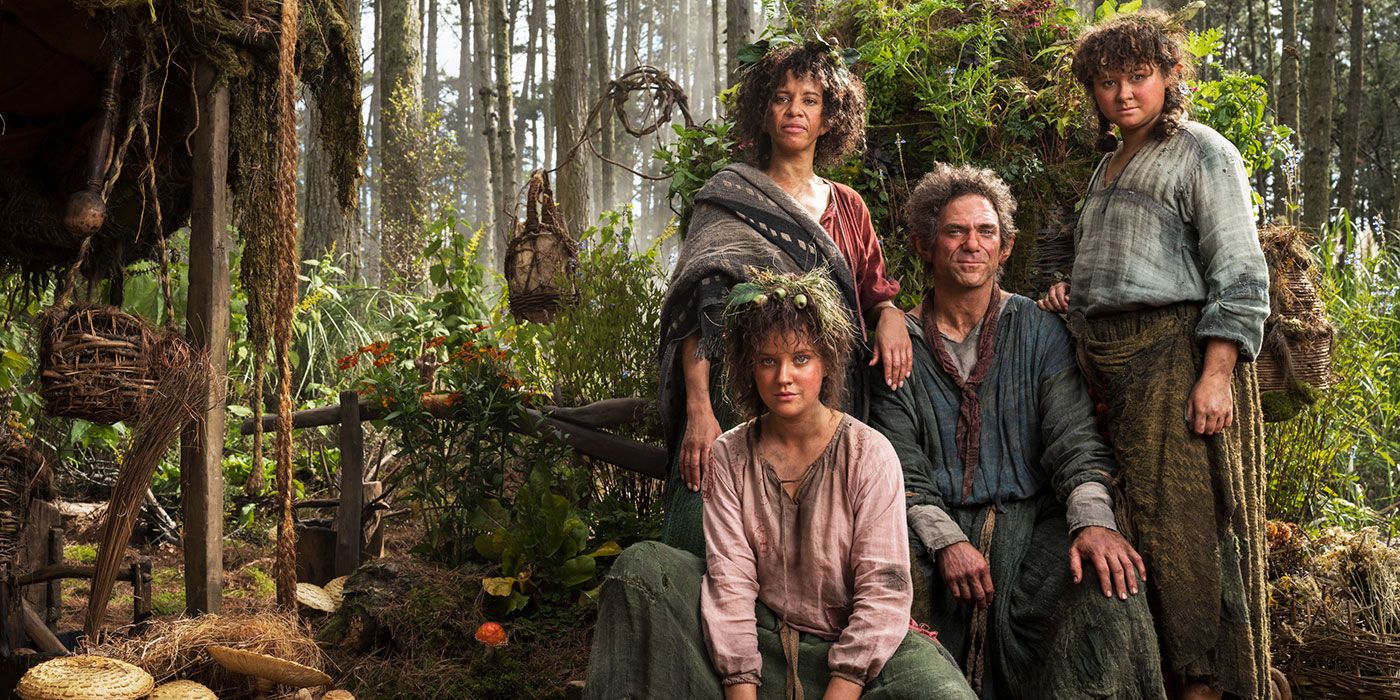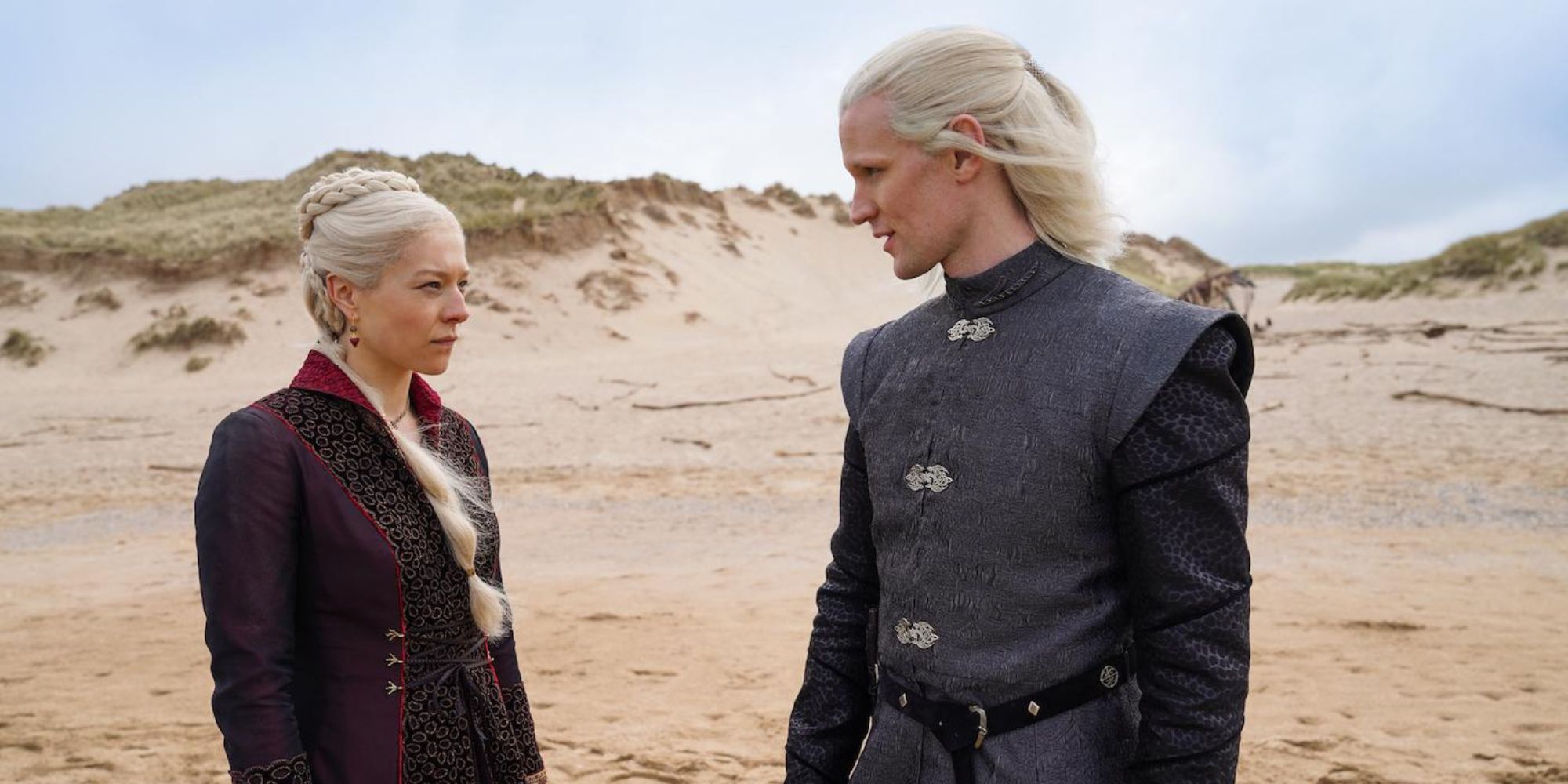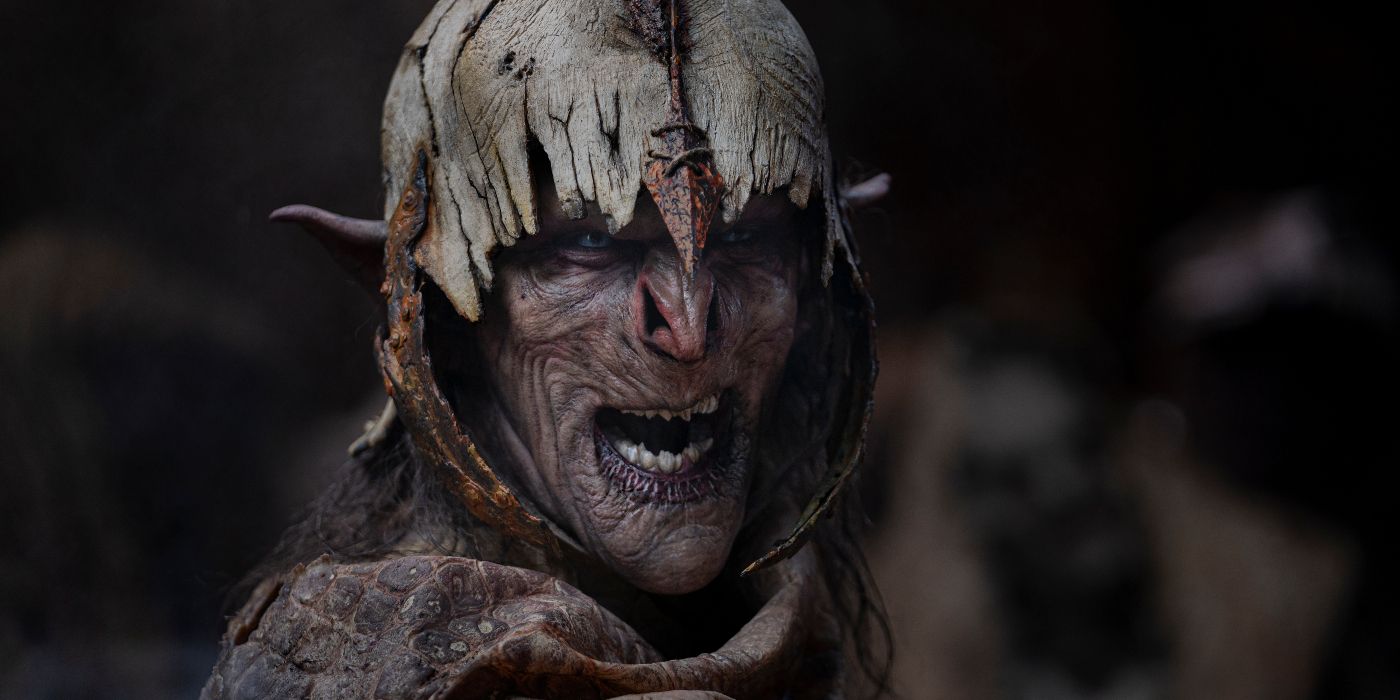We’re in an era where major studios wield the intellectual properties at their disposal as the flagships of their streaming services. This Fall, we’re seeing a standoff between two of the most popular fantasy franchises of all time. Both HBO’s Game of Thrones prequel series House of the Dragon and Amazon Prime’s J.R.R. Tolkien-inspired show The Lord of the Rings: The Rings of Power debuted their premiere episodes within weeks of each other. Fantasy fans have an embarrassment of riches in front of them.
However, it may be a challenging time for anyone who hasn’t caught up. It’s a serious commitment to watch all of Game of Thrones or the entire The Lord of the Rings saga, not to mention the thousands of words written by the authors of the book series the two franchises are based on. Neither franchise is particularly light when it comes to mythology; you’ll have to learn the names of various houses, creatures, kingdoms, characters, and historical events. Even the swords have names! Sean Bean dies in both, so it may be hard to keep them apart.
Both Prequels Are Based On Source Material Written by the Authors
Both House of the Dragon and The Lord of the Rings: The Rings of Power are prequels. Some prequel stories rely heavily upon an expected knowledge of the source material, while others provide a good starting off point for those who are entering the universe for the first time. The first few installments of both shows have been rewarding for longtime fans of George R.R. Martin and Tolkien, respectively. However, the barrier of entry for first-time viewers is much lower for House of the Dragon.
House of the Dragon takes place a full two centuries before the events of Game of Thrones. Although it takes place within a recognizable version of Westeros, there aren’t any crossover characters. In fact, the references to figures in House of the Dragon on Game of Thrones are relatively minimal. However, The Rings of Power features many characters from the original films thanks to the longevity of Elven life. Seeing younger versions of Galadriel (Morfydd Clark) and Elrond (Robert Aramayo) is more rewarding if you know the people they become.
The Devil Is in the Details and Rings of Power Does Not Spend Enough Time Explaining Those Details
The events of The Rings of Power are explicitly tied to the story of The Lord of the Rings; Sauron’s first downfall, the creation of the rings, and the destiny of the Elves to reach Valinor are critical to Frodo Baggins’ (Elijah Wood) adventures. The Rings of Power doesn’t take the time to re-explain the significance of what’s going on. The sailing to Valinor and Sauron’s symbol are characterized as important, but not fleshed out in detail.
Comparatively, the story of House of the Dragon is relatively contained. The first episode, “The Heirs of the Dragon,” is entirely focused on an internal family’s struggle. It presents a compelling situation; King Viserys I (Paddy Considine) is heartbroken upon the death of his wife and son. We see a very clear conflict brewing. Viserys names Rhaenyra (Milly Alcock) as his heir, even though the Iron Throne is Daemon’s (Matt Smith) by tradition as the next male heir. It speaks to universal themes about the restrictions of the patriarchy, family dynasties, and the ignorance of the rich.
The conflict itself in The Rings of Power is much less clear. The show isn’t even done introducing all the primary characters at the end of the first two episodes. We’re still getting introduced to humans, Dwarves, Elves, and Harfoots. Each civilization lives in a different location with a different name. In the first House of the Dragon episode, we never go beyond King’s Landing and Dragonstone.
Rings of Power Has to Do Too Much Work, House of the Dragon is Far More Contained
Both shows open with an intro of sorts that sets up the story. The House of the Dragon title card clearly explains why Viserys is on the throne, why this line of succession matters, and how it’s connected to Game of Thrones. Although there are references to past events like “Aegon’s Conquest,” they’re discussed frequently enough by the characters that it’s fairly easy to deduce their significance. Viserys even takes the time to explain what “A Song Of Ice and Fire” is to his daughter. By contrast, The Rings of Power opens with a sweeping sequence that covers the birth and rise of Middle-earth in detail. You’ll have to pay close attention if you're completely new to Tolkien's lore, because knowing the ramifications of the war against Morgoth are critical to understanding the plot.
It’s admirable that both shows have chosen to put their female protagonists first. While both Rhaenyra and Galadriel are compelling characters, the young princess is a more relatable character than the immortal elf warrior. Rhaenyra has to deal with a burden that she never asked for, and she’s constantly undermined by men who discount her. However, the viewer can understand why she needs to step up to the responsibility because they’ve seen what a kingdom under Daemon looks like after the brutal campaign of the Goldcloaks.
Galadriel's character arc is less clear. She struggles with her mission against evil and abandons her ship to paradise; that may not be as easy to latch on to. While perhaps the loss of Finrod (Will Fletcher) might have given her room to express emotion, her brother’s death is used more as a plot point to explain the lurking evil that still exists in Middle-earth. Sauron himself has only appeared in flashbacks; the conflict in the first two The Rings of Power episodes revolves around a mysterious series of cataclysmic events. Even if fans know the significance of Elrond being sent to Celebrimbor's (Charles Edwards) forge, first-time viewers are unlikely to know that this is a reference to the creation of the rings.
There’s also a matter of tone. House of the Dragon presents itself as a political thriller, but Lord of the Rings proceeds as a sweeping epic. Although there’s a brief action sequence at the beginning of the pilot where Galadriel and her companions face off against a monster, the rest of the hour-long episode is mostly exposition. House of the Dragon has dexterously teased its scope. The first episode shows only the smaller-scale combat during the royal joust and the ransacking of King’s Landing by the King’s Guard. We don’t get an epic faceoff between armies until “Second of His Name,” when Daemon leads the charge against Craghas Drahar (Daniel Scott-Smith).
House of the Dragon Does Not Have the Rights Issues That The Rings of Power Has
To be fair, the showrunners of The Rings of Power also have some creative restrictions that they face that the House of the Dragon team does not. Original A Song Of Ice And Fire author George R.R. Martin is actively involved as a creative and executive producer. Martin is there to answers any questions, fill in gaps in the universe, and even chime in with his support on social media and his personal blog.
Comparatively, Amazon only has the rights to certain assets within Tolkien's body of work. According to the current agreement, Amazon has control over The Lord of the Rings and The Hobbit. They cannot use the many other Middle-earth novels that Tolkien has written, including The Silmarillion, a guide that tracks the entire history of the fictional universe. The Silmarillion fleshes out the Second Age of Middle-earth, which is the same time period that The Rings of Power takes place in. Tolkien's family estate has never been supportive of any adaptations of his work for the screen; Tolkien's son, Christopher, was heavily critical of Peter Jackson's award-winning trilogy.
Television fans have endless shows to watch readily available to them. With streaming services churning out new programs at a rapid pace, viewers are forced to pick and choose what long-term shows that they want to commit themselves to. House of the Dragon offers a good first taste for those looking to make the journey to Westeros for the first time; The Rings of Power is best for those who have already been “there and back again.”

